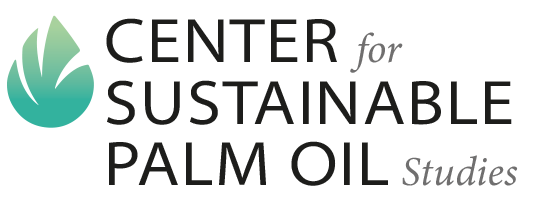
The use of satellite technology to track and halt real-time cases of deforestation in a country like Malaysia could become a “blueprint” for ending deforestation in the Amazon, writes Daniel Mackisack.
Daniel Mackisack is a former diplomat and social entrepreneur. He has worked with the World Bank, the UK and New Zealand governments and numerous non-profits, in addition to sitting on the board of the British New Zealand Business Association.
Tackling deforestation has wider benefits beyond ensuring biodiversity and fighting climate change. In addition to exacerbating global warming, scientists have warned that deforestation heightens the risk of global pandemics.
In fact, deforestation and forest degradation may have played a critical role in triggering the COVID19 pandemic. According to a study in Nature, the populations of animals hosting zoonotic diseases, like the coronavirus, are up to 2.5 times higher in degraded places.
Whilst this realisation has spurred world governments to take stronger measures against deforestation (for example a recent British Bill), it is near-impossible to track illegal logging – which, according to the World Wildlife Fund accounts for 50-90% of forestry activity afflicting the world’s biggest rainforests.
Tackling deforestation is not merely an option, but a necessity, and not ‘just’ for the continued health of the planet or the global economy, but for the health of everyone, everywhere.
So far, most government efforts have focused on developing ever-more complex forms of regulation to put a halt to deforestation. But there is uncertainty over how effective or consistent such regulation can be.
Major questions have been raised, for example, about the EU’s approach to tackling deforestation by simply implementing a de facto ban on palm oil for biodiesel. This has been followed by renewed discussions in Brussels about other more stringent mechanisms applicable to a wider range of commodities, such as joint certification schemes and stronger due diligence laws for companies in relation to their supply-chains.
There are now abundant scientific studies demonstrating that a focus on individual crop regulation doesn’t necessarily stop deforestation. It merely displaces demand onto other commodities which may use more land, water and fertiliser, and therefore drive greater rates of deforestation.
There is also the danger that such regulation ends up violating WTO rules on protectionism, which already disadvantage developing economies. Larger producers in these countries pass costs on to smallholder farmers and the compounded result is higher costs borne by lower income communities, while not actually reducing deforestation.
Part of the problem with the existing approach is that it punishes economic policy, yet does little to adequately monitor or prevent illegal logging. But perhaps there is a better way, which puts the emphasis on cultivating effective local mechanisms that make sense within diverse economies.
Ironically, to save the earth, we may need to go to space – monitoring the situation using space-based technologies could be the game-changer capable of transforming the ability of governments, farmers and companies to truly clean up supply chains.
A recent UK government survey found that monitoring illegal logging with satellites could be up to 12 times more cost-effective than traditional measures. It is not necessarily just a reactive measure either – satellite technology can offer real time monitoring of large-scale illegal deforestation operations. This allows for the kind of rapid-response capability that the fight against global deforestation desperately needs and enables pressure and policy to be applied in a targeted and effective fashion.
This is not a mere theoretical assertion. Last month, Glenn Hurowtiz, the CEO of top anti-deforestation NGO Mighty Earth, pointed at the use of satellite technology to track and halt real-time cases of deforestation in a country like Malaysia as a “blueprint” for ending deforestation in the Amazon. Such local efforts have meant that “deforestation for palm oil has plummeted from a million acres per year to fewer than 250,000 acres in each of the past three years.” As a direct result of this application of space-based tech, he said, “there are many orangutans, tree kangaroos, and other endangered animals that are alive today”.
There’s still room for progress, but at least in Malaysia’s case, the government is actively supporting efforts under Malaysia Sustainable Palm Oil (MSPO) – the world’s first national mandatory sustainable certification scheme which now encompasses some 87% of the palm oil industry. Last December, the Malaysian government declared its aim was to achieve 100% traceability at the farm level, by publishing oil palm concession satellite maps.
Developments like these suggest that the most effective steps forward in putting an end to deforestation and in turn, improving the health of the planet and everyone on it, might not solely be a matter of passing new legislation, but adopting better technology and partnering with the developing world to make it available to all.
Our collective capacity to prevent and manage crises in the future, from pandemics to climate change, may well depend on our ability to deploy and share space-based technology. Whether governments and policymakers take note is another question.
By Daniel Mackisack
Original link: https://www.euractiv.com/section/biomass/opinion/the-answer-to-deforestation-lies-in-space/


